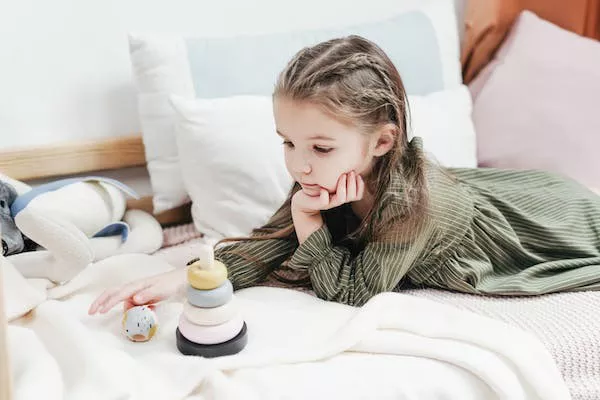Newborns require delicate and thoughtful care, and one of the most common questions that new parents have is, “How often do you shower a newborn?” Ensuring proper hygiene while not overwhelming your little one is crucial. In this comprehensive guide, we will provide expert advice on the frequency of bathing your newborn, taking into consideration their delicate skin and overall well-being.
Item 1: When Should You Give Your Newborn Their First Bath?
Newborns typically receive their first bath in the hospital shortly after birth. This initial bath helps remove any remaining traces of vernix and meconium, substances that protect the baby in the womb. However, you don’t need to give your baby a full bath every day during the first few weeks.
1.1. Sponge Bath: In the early days, a sponge bath using a soft, damp cloth is sufficient to maintain their hygiene. You can gently wipe your baby’s face, neck, hands, and bottom without the need for a full bath.
1.2. Frequency: Aim for a sponge bath every two to three days during the initial weeks. This will help keep your newborn clean without disturbing their delicate skin’s natural oils.
Item 2: Establishing a Bathing Routine
As your newborn grows, you can gradually transition to a more regular bathing routine. However, it’s essential to remember that frequent bathing can strip their skin of natural oils, leading to dryness and irritation.
2.1. Frequency: For babies older than one month, a bath 2-3 times a week is generally sufficient. Overbathing can lead to skin issues, so avoid daily baths unless recommended by your pediatrician.
2.2. Water Temperature: Ensure the water is lukewarm, around 100°F (37°C). Test it with your elbow or the inside of your wrist to ensure it’s not too hot.
2.3. Bath Duration: Keep baths short, around 5-10 minutes, to prevent overexposure to water and detergents.
Item 3: Signs of Skin Sensitivity
Newborns have incredibly delicate skin, and it’s crucial to be attentive to any signs of skin sensitivity or irritation.
3.1. Rashes or Redness: If you notice any redness or rashes on your baby’s skin, it’s a sign that the bathing frequency may be too high. In such cases, reduce the number of baths and opt for a milder soap.
3.2. Cradle Cap: Some babies develop a condition known as cradle cap, which is a type of seborrheic dermatitis. Use a gentle, baby-specific shampoo and consult your pediatrician if it persists.
Item 4: Bathing Accessories and Products
Choosing the right bathing accessories and products is essential to ensure your newborn’s comfort and well-being.
4.1. Baby-Friendly Soap: Use a mild, hypoallergenic soap specifically designed for babies. Harsh chemicals in adult soaps can cause skin irritation.
4.2. Soft Towels and Washcloths: Invest in soft, absorbent towels and washcloths that won’t be too harsh on your baby’s skin.
4.3. Baby Bathtub: You can use a small, baby-sized bathtub or a sink for bathing, which will make it easier to handle your little one.
Item 5: Baby’s Reactions
Pay attention to your baby’s reactions during and after their bath. Their response can provide valuable insights into their comfort and enjoyment.
5.1. Temperature: Ensure the room is warm, and the bathwater is at a comfortable temperature to prevent your baby from getting cold during the bath.
5.2. Enjoyment: Some babies find bath time enjoyable, while others may be more sensitive to it. Adjust your bathing routine based on your baby’s comfort level.
5.3. Post-Bath Care: After the bath, gently pat your baby dry with a soft towel and apply a baby-friendly moisturizer to help retain their skin’s natural moisture.
Conclusion:
Bathing your newborn is an essential part of infant care, but it’s crucial to strike the right balance between cleanliness and skin care. The frequency of bathing your newborn should be guided by their age and skin sensitivity, and always keep a close eye on their comfort and well-being during and after the bath. By following these expert recommendations, you can ensure that your baby’s first baths are a gentle and enjoyable experience that supports their health and hygiene.



